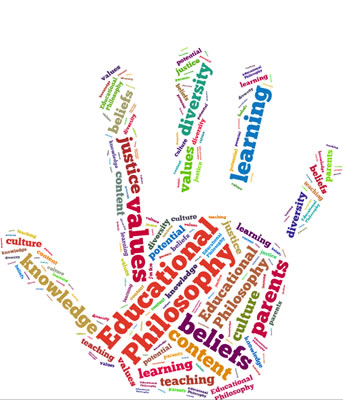Pragmatism
Pragmatic
philosophy started by the Greek philosopher Heraclius, but the spread of this
philosophy was coupled with name of the American philosopher John Dewey. It
considers that everything must be experimented in order to prove it, therefore
it represents a new progressive trend in philosophical thoughts.
Basic principles of pragmatic philosophy
Among
the basic principles of pragmatic philosophy are those which emphasize that the
individual is part of society and has a certain role in it. Adding to that, man
has a neutral nature, since he is neither good nor bad but he has the
willingness to be this or that, depending on the type of education reveived.
Other principle is that knowing the divine self and how the universe exists is
impossible.
Role of students
Regarding
the role of student, pragmatist sees that students should collaborate with
others, able to solve problem by self, and producing new methods for solving
them. Pragmatists prefer students to have a well developed personality with the
ability to communicate socially and self proof.
Role of teachers
Pragmatists
ensure that teachers should suggest problems and lead students to find ways to
solve them, also teach them how to think
and work. What is important that building educational attitudes on problems to
better understand the surrounding.
Methods and curriculum
Pragmatists do not advocate a fixed
curriculum in advance, yet it should be evolved according the requirement of
situations. Thus pragmatists claim to flexible curriculum so that the nature of
the learner has to be taken into consideration. Pragmatists try to include
activities from daily life into the curriculum. It emphasizes only utilitarian
aspect therefore, neglect subjects like poetry and art. Learning by doing is
one of the basic methods of teaching in pragmatism. It is applied by
encouraging students to learn through self-effort , not by reading books, but
by actual doing things. Also including real life situations with topics learned
in class. The learner is given a real and purposeful activity to carry out, by
doing so he acquires principles, skills, and methods. Thus the learner obtain
knowledge by experiences gained from tasks and activities.


Such an interesting topic to shed the light on Rama!So,pragmatism is such an important phenomenon in the educational process and should be taken into consideration by teachers in order for students to have a better understanding considering their surrounding
ReplyDeletethank you Dana ! i hope that teachers take this into consideration.
DeleteYou see, idealism detached from action is just a dream. But idealism allied with pragmatism, with rolling up your sleeves and making the world bend a bit, is very exciting. It's very real. It's very strong.
ReplyDelete